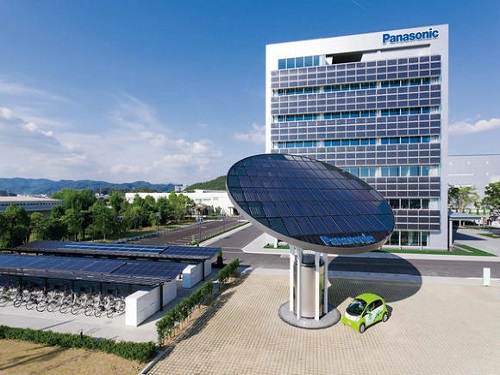
After Samsung, LG and other overseas power battery giants entered China to build power battery manufacturers, Panasonic finally came. Panasonic will build a car lithium battery plant in Dalian, China, with an investment of 50 billion yen (approximately US$412 million). The factory is located in northeast Dalian and the factory will produce rectangular batteries for electric vehicles and plug-in hybrid vehicles. Panasonic will build a factory with its Chinese partners and start production in 2017.
In China, Panasonic already has a factory that manufactures personal computer batteries. The new plant will be Panasonic’s first factory dedicated to the production of electric vehicle batteries. The battery produced annually by the factory can be used by 200,000 electric vehicles. China is developing environmentally friendly vehicles, including electric vehicles, and the air pollution problem has plagued many cities in China. Panasonic is the world's largest manufacturer of lithium battery for electric vehicles. It has established a lithium battery plant with Tesla in the United States. By transferring production capacity to China, Panasonic hopes to consolidate its business in the two key markets of China and the United States.
South Korea’s LG Chemicals is the third-largest supplier of electric vehicle batteries, and its plant in Nanjing began operations in October. Panasonic hopes that China will have its own production base to increase battery supply to automakers. Its goal is to allow the company's annual revenue in China to reach 100 billion yuan.
Samsung is also an international power battery giant. It is a supplier of German BMW and Chrysler. On October 22, the completion ceremony of the Samsung SDI Automotive Battery Factory was held in the high-tech industrial development zone in Xi’an, Shaanxi Province, China. Jiang Feng, vice governor of Shaanxi Province, Zhao Nancheng, president of Samsung SDI, and Zhang Yuanji, president of Samsung (China), attended the ceremony. The completed Samsung SDI Xi'an plant has a production line with an annual output of 40,000 high-performance automotive power (pure electric EV standard) batteries. The production line covers the entire process flow for the production of automotive power battery cells and modules.
Since 2013, Japanese companies’ investment in China has begun to decline, and disputes between countries are partly responsible. The situation has improved this year. Itochu has decided to inject 600 billion yen (about 32.2 billion yuan) into China International Trust and Investment Corporation, and Japanese automakers have also decided to invest 500 to 60 billion (2.7 billion to 3.2 billion yuan) in Japanese yen. China expanded its manufacturing plant. Panasonic's investment attracts attention mainly because it is not an auto dealer.
In the United States, Panasonic and Tesla invested US$5 billion to build a lithium battery plant, which will begin production on the next year. By 2020, the factory's batteries will be available for 500,000 electric vehicles.
Dongguan Hongyu Automation Technology Co. Ltd , https://www.cwprinter.com